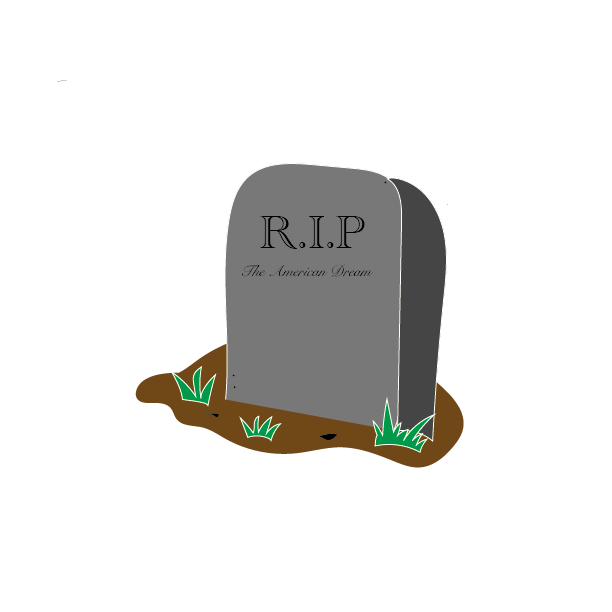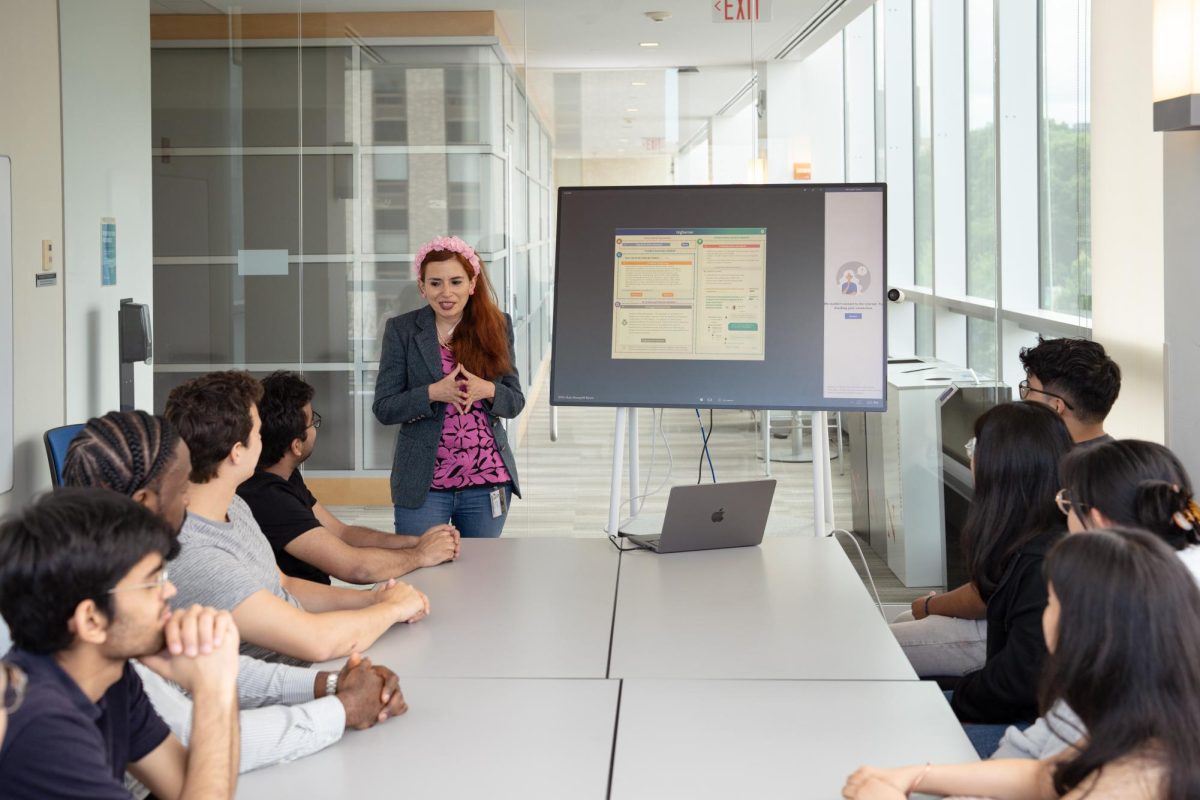Op-ed: We need a new American Dream
April 3, 2023
Since the insular gates of the COVID-19 pandemic gave way, the American zeitgeist has been dominated by an obsession with opulence. True to the ceaseless boom-bust cycle, mass deprivation spilling into mass over-consumption is intuitive on the macroeconomic level. But in the micro-economies existing in our communities, homes and friend groups, we as young people have managed to deny the looming global recession and general financial responsibility through the numbing nature of material goods.
During the incessant downtime of the pandemic, the eyes of even the most disconnected turned to screens, resulting in the omnipresent sensationalization of all facets of media from fear-mongering news cycles to the “Queen’s Gambit” and banana bread. Suddenly, in a time of unavoidable loneliness and fear, the presence of algorithms that intrinsically understood what we wanted to see were vital. And with that, rampant consumerism ensued.
The American fascination with money and the act of accumulating it is not a secret; the need to achieve financial success has been encoded into its founding principles and handed to its citizens in the glimmering form of the American Dream. In the United States, productivity is a religion, the ownership of goods indicates well-being and happiness and wealth is hoarded not distributed.
Pop culture augments this through shows like “White Lotus,” “Succession” and “Gossip Girl,” which have viewers salivating over the uber-wealth that feels just beyond their reach. Short-form content is even more dangerous in this gluttonous nature because its creators have perfected guerilla marketing, deeming each product shown a “must buy” and instilling a sense of immediacy in the viewer to curb the hoards of people that will inevitably flock. Companies have perfected harnessing new and traditional media for advertisement to the point where product placement has been a natural fixture of our lives. Meanwhile, contentment inches further and further away as material goods mutate from desires to urges to needs.
Gen Z, in their progression to adults and economic agents, has shown abnormally conscientious consumption patterns. Because consumption is viewed as an extension of their individual identities, they are inclined to make purchases that align with their ethics. In fact, Gen Z and millennials’ collective push for ethical consumption has had a significant role in the rise of the environmental, social and corporate governance market, better known as the ESG market, which is estimated to reach a valuation of $33.9 trillion in 2026. But, with all signs pointing toward excess, it creates a true dilemma for young people making the paradoxical choice between ethical consumption and the imbued need to act on all their material desires.
In the last year, consumer prices rose 6.5%. The United States Federal Reserve, or U.S. Central Bank, has aggressively pursued hiking up the federal funds rate— reaching 40 year highs—and developed economies across the globe have done the same to tame inflation. Global growth forecasts are projected to fall to 2.9% this year as opposed to reaching the historical average 3.8%. Companies are offsetting revenue losses through mass layoffs and the banking sector is on the precipice of collapse. But, we don’t need statistics to warn of economic instability. Students with already tight wallets are feeling the effects of surging grocery bills, living costs and $7 coffees.
Our generation cannot afford its spending habits and struggles to curb the capitalistic enticement of more. Despite the euphoric spending environment we aim to create for ourselves, the already withering outside world continues to incur collateral damage. Young people have absolved themselves of responsibility for their own and their communities futures as all seems futile. And while this is understandable, more discipline is needed. Stepping away from algorithmic bliss, taking inventory of our relationship with consumption and seeking financial literacy will be imperative as we enter the labor market amid global economic uncertainty.
The current economic situation also presents an opportune moment for a shift in societal values. As people struggle to grapple with the loss of their financial success amidst economic instability, we are given a chance to recalibrate this flawed ideal that sits at the core of our culture. Why is it that we deem the poor to be unmotivated failures while we revere the work ethic of the rich who, more often than not, amass their wealth from luck and preexisting privilege? The unnerving reality of the American Dream is that every person in the United States does not have equal opportunity to make it big and this has always been the case.
Americans are in dire need of a new dream — one that doesn’t fixate on well-being in financial metrics. The ability to consume eternal supplies of goods, services and entertainment is our greatest privilege, and perhaps more accurately, our greatest burden.
Ananya Chaudhari is a second-year economics and finance major. She can be reached at chaudhari.ana@northeastern.edu.








